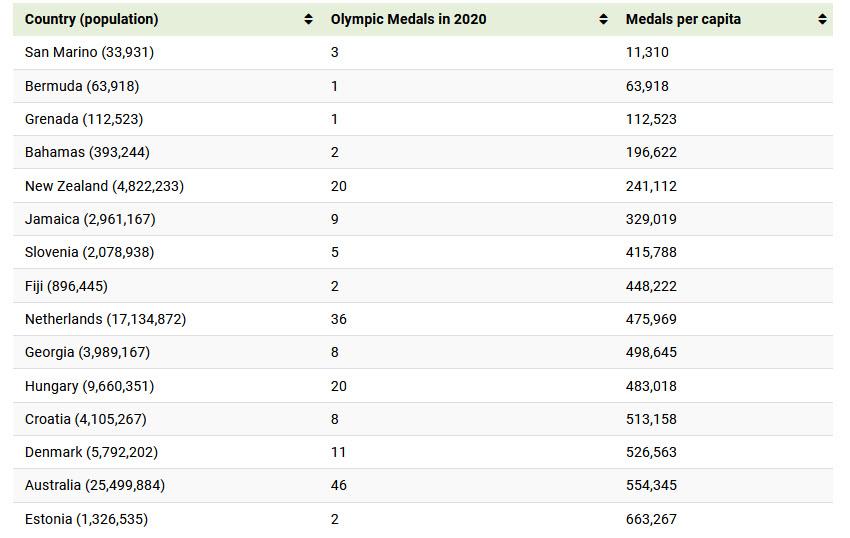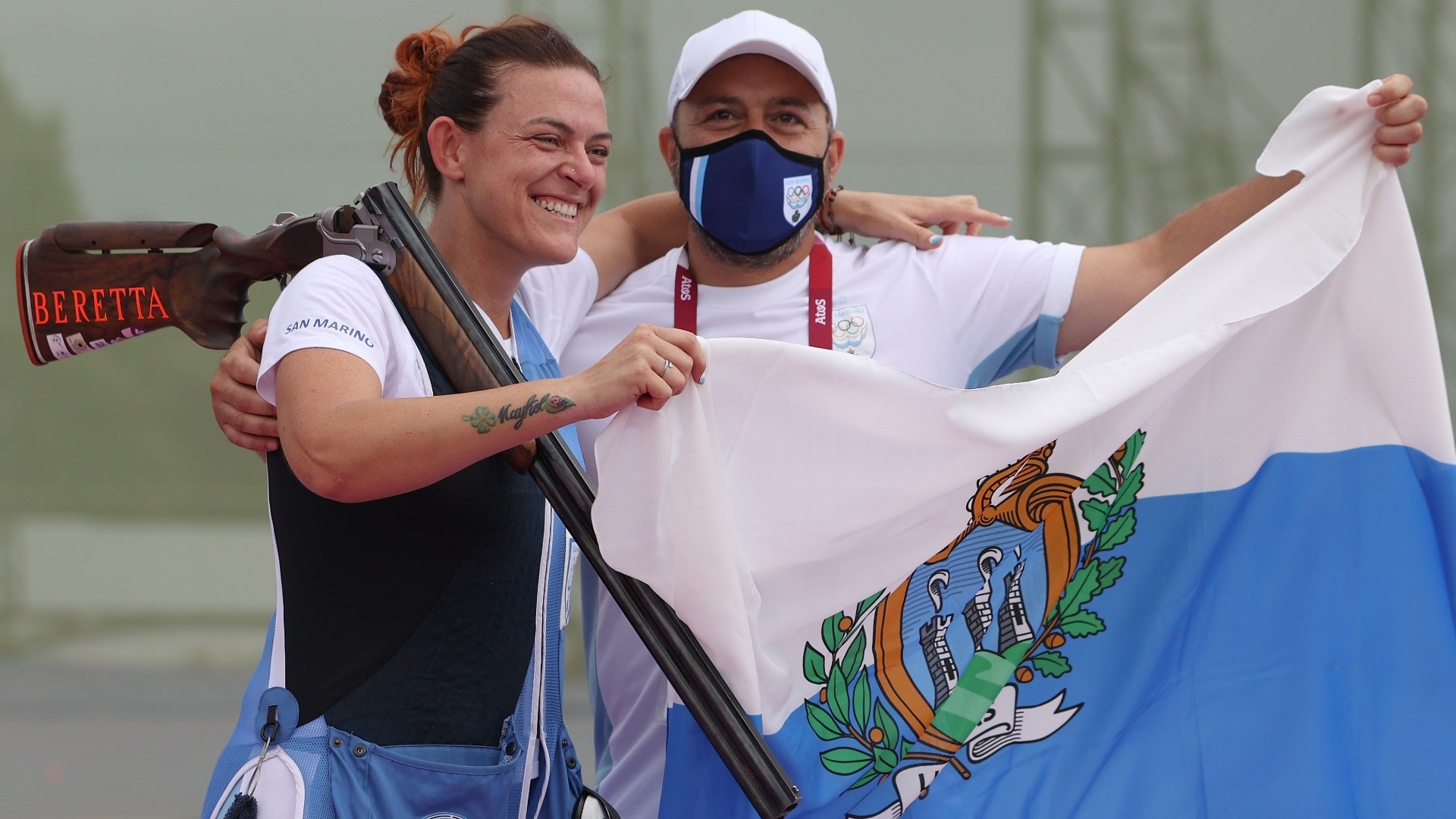
The athlete from San Marino fought a long time for her bronze medal. But the wait sometimes pays off, just ask Alessandra Perilli. And there are (still) a few countries that have been competing for decades without any sign of luck, from micronations such as Monaco and Liechtenstein to populous giants like Congo and Myanmar. Sometimes the way to glory is more energy-sapping than running a marathon. The oldest republic in the world, a micronation enclaved in Italy, is not only an example of making the most of limited chances. San Marino, the 2nd place at this reimagined medal table, however, is also worth taking a closer look at. If we were to rank the Olympic nations for their victory ratios and not for the total medals that they amass, some unusual contestants would rise to the top.

On the other side of that coin, athletes from less-successful nations often win more, proportionally, than their counterparts from powerhouse countries, just like Bermuda did. Winning a lot, in the end, might just be a byproduct of losing a lot. France and Germany were defeated almost 90% of the time. The Russian athletes lost 80% of their competitions. When it comes to the victory ratios, Japan is no exception. Her success gave the tiny nation the best appearance to gold medal ratio in Tokyo, with 50%. Nevertheless, it won gold with triathlete Flora Duffy. On their way to get those 58 medals, they blew almost 350 other opportunities, meaning Japanese athletes failed to medal in 85% of their appearances.īermuda, on the other hand, only had two shots at glory. Japanese competitors are among the ones who lost the most at the Tokyo games. While Japan won more medals in this Olympics than the country has in any other – 58 in total – and Bermuda won just one, there's a solid argument to put the small Caribbean archipelago at the top. Whose national athletes won more medals in Tokyo, Japan's or Bermuda's? Wait for it! Pay attention powerhouses: this means that nations that couldn't even dream of Olympic laurels are getting a significant share of victories too.Īnd there's more: depending on your perspective, countries like Fiji, Georgia and even the 60,000-inhabitant Bermuda are doing better than many Olympic giants. In Tokyo, they won a record-breaking 13% of all medals – way up from the single-digit percentages they used to win two decades ago. This might seem like a lot, but it's way down from the 70% those top dogs used to get during the latter half of the Cold War, when the United States and the Soviet Union fought tooth and nail for dominance in the sporting world.Įven more striking is the rise of nations that finished 40th or lower in the medal rankings. Ten countries won 55% of all medals in Tokyo.

The Tokyo Olympics continued a recent trend: with each edition of the games, a higher share of the medals have been awarded to nations who have not previously been prominent in the medal table. However, there's some reason for optimism.

The raw numbers sound disheartening, especially if you root for the underdogs. While 113 of the 216 national teams that competed in Tokyo went home empty-handed, the top 10 medal-winners hoarded more than half of the honors. Here are four reasons why they're worth attention. Instead of writing one more story about the medal hoarders and their tales of triumph, DW decided to look at the (mostly) unsung heroes of Tokyo: the countries and athletes who won just a little and even those who lost a lot. For most of the competitors, the trip to Japan was a journey to almost certain defeat. Nearly 12,000 athletes traveled to Tokyo in 2021 to compete for only 1,080 medals. Despite the spotlight being constantly fixed on winners and record breakers, those that don't make the podium form the backbone of the Olympics.


 0 kommentar(er)
0 kommentar(er)
